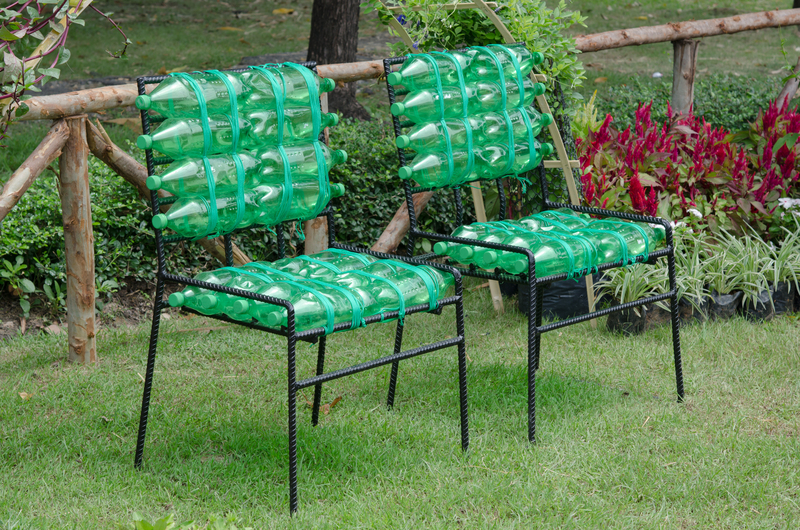Avoid Mistakes with Skip Hire: Essential Dos and Don'ts
Skip hire is a convenient and cost-effective solution for managing waste generated during home improvements, garden clearances, construction projects, and general decluttering. However, hiring a skip can lead to issues if not dealt with correctly. If you are planning on booking a skip, it is critical to understand the dos and don'ts of skip hire to avoid pitfalls, penalties, and extra charges. In this comprehensive guide, we'll explain how to avoid costly mistakes and get the most out of your skip rental.

Why Avoiding Mistakes Matters in Skip Hire?
Improper skip hire practices can result in unexpected fees, project delays, legal issues, and environmental damage. By following the right skip hire guidelines, you help ensure:
- Safe and efficient waste disposal
- Compliance with local regulations and permits
- Protection for your property and the environment
- No hidden costs or fines
- A hassle-free experience from start to finish
Below, discover the key skip hire dos and don'ts for every stage of your project.
Planning Your Skip Hire: Dos and Don'ts
Do: Assess Your Waste Volume and Type
- Estimate the amount of waste you'll generate. Skips come in various sizes--mini, midi, builder's, and large skips. Overfilling costs more, but underfilling wastes money.
- Identify the type of waste. Skip hire companies have restrictions on what can be placed in skips. Sorting your waste in advance avoids violations and extra charges.
Do: Choose the Right Skip Size
- Select a skip that fits your needs. Sizes range from small 2-yard skips to large 16-yard containers. Speak to the hire company if you're unsure; it's better to overestimate slightly than to need a second skip later.
Do: Check Permits and Permissions
- If placing your skip on public land (e.g., on the road), you'll likely need a permit from your local council.
- Failure to secure the proper permit can lead to fines or removal of the skip.
- Position your skip responsibly. Avoid obstructing neighbours, pavements, or access ways.
Don't: Leave Planning Until the Last Minute
- Book your skip ahead of time to ensure availability--especially during peak home improvement or construction seasons.
- Rushed hires can lead to selecting the wrong skip size, forgetting necessary permits, or facing project delays.
Placing and Using Your Skip: What to Do and Avoid
Do: Place the Skip on a Suitable Surface
- Place skips on firm, level ground. Avoid soft grass or uneven surfaces which can't support the skip's weight, especially when full.
- If using a driveway, consider protective boards to prevent scratches or damage to paving.
Do: Fill the Skip Safely and Efficiently
- Load heavier items first (e.g., soil, bricks) at the bottom for stability.
- Place lighter waste on top.
- Maximise space by breaking down large items. Flat pack furniture, cut up branches, and compact bulky waste before loading.
Don't: Overfill Your Skip
- Never fill the skip above the "fill line" indicated on the container.
- Overloaded skips are hazardous to transport, and the skip provider may refuse collection or charge extra for excess waste.
Don't: Block Access or Obstruct Traffic
- Ensure your skip does not block driveways, emergency exits, footpaths, or create visibility hazards on roads.
- Communicate with neighbours if the skip impacts shared access.
What Can and Cannot Be Put in a Skip?
Do: Dispose of Permitted Waste Responsibly
Most general household, garden, and construction waste is accepted. This includes:
- Soil, rubble, and hardcore
- Uncontaminated wood and timber
- Old furniture (beds, wardrobes, sofas)
- Plastics, cardboard, and packaging
- Non-electrical fixtures and fittings
Don't: Place Prohibited Items in the Skip
Prohibited items typically include:
- Asbestos: Extremely hazardous and requires specialist disposal.
- Fridges, freezers, and electrical appliances
- TVs, computers, and monitors
- Batteries and fluorescent tubes
- Paints, solvents, and chemicals
- Tyres and gas cylinders
- Medical or biological waste
Placing these in your skip can incur additional disposal fees, lead to refusal of collection, or legal penalties. When in doubt, consult your skip hire provider, or take hazardous items to local recycling centers that handle such materials.
Common Skip Hire Mistakes to Avoid
Don't: Underestimate Your Required Skip Size
- Hiring a skip that is too small leads to extra hires and higher total costs. It's usually more economical to choose a slightly bigger skip to start with.
Don't: Forget About Parking and Access for Delivery/Collection
- Ensure sufficient space and clear access for the skip lorry.
- Remove vehicles or obstacles ahead of your scheduled drop-off and pick-up times.
Don't: Delay Removing Your Skip
- Leaving your skip for too long may result in additional daily or weekly hire charges.
- Skips left on roads for extended periods can lead to council action against you or your supplier.
Don't: Ignore Safety
- Avoid climbing inside the skip or allowing children to play in or on it.
- Never light fires in a skip.
- If the skip is on the road, ensure safety lights and markings are in place, especially overnight.
Do: Communicate with Your Skip Provider
- If your plans change, inform your skip supplier promptly--whether that's an early collection, late pick-up, or swap for a larger size.
- They can advise on the types of waste accepted and any additional services available, such as wait-and-load options.
Environmental Dos and Don'ts of Skip Hire
Do: Separate Waste Where Possible
- Segregating materials such as metals, plastics, and green waste improves recycling efficiency and protects the environment.
- Ask your skip company if they provide multiple skips for different waste streams on larger jobs.
Don't: Dispose of Hazardous Waste Carelessly
- Hazardous items require specific handling to avoid soil and water contamination and to comply with legislation. Never mix hazardous waste with general skip waste.
Money-Saving Tips for Skip Rental
- Compare skip hire prices from several local companies.
- Avoid oversized skips unless you are sure you need them.
- Break down bulky items and fill the skip efficiently to maximise usage.
- Share a skip with neighbours if you're all planning clear-outs at the same time.
- Order your skip for the shortest reasonable period--most projects can be completed in a week.

Frequently Asked Questions about Skip Hire Dos and Don'ts
Q: Can I place a skip on the pavement or public road?
A: Only with permission! You'll need a skip permit from your local authority, and the skip must have reflective markings, safety lights, and cones for safety. Never place a skip on the pavement without explicit consent.
Q: What happens if I throw prohibited items in the skip?
A: The skip hire company may refuse to collect the skip, charge you extra for hazardous waste removal, or report the issue to local authorities, resulting in fines or prosecution.
Q: How long can I keep my skip?
A: Most standard skip hire periods are 7-14 days. Extensions are usually possible but may incur additional daily charges. Clarify your schedule when booking to avoid surprises.
Q: What is a "wait-and-load" skip service?
A: Some companies offer a service where the lorry waits at your site while you load the skip, then removes it immediately--useful if space or parking permits are limited.
Conclusion: Make Your Skip Hire Smooth & Stress-Free
By following these skip hire best practices--from choosing the right size to disposing of your waste responsibly--you not only save time and money but also reduce your environmental impact and avoid legal headaches. Remember to:
- Plan ahead and secure necessary permits
- Understand what you can and can't put in a skip
- Fill skips safely, efficiently, and within capacity limits
- Communicate with your skip rental company for smooth service
Hiring a skip should simplify your project, not complicate it. With these skip hire dos and don'ts, you'll enjoy a hassle-free and compliant experience--while keeping your site tidy and your waste managed professionally.